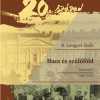The Populist Radical Right and Public Education
Az Encyclopedia of New Populism and Responses in the 21st Century című, a Springer kiadónál megjelenő kiadványban Neumann Eszter írta a közoktatásról szóló szócikket, melynek címe The Populist Radical Right and Public Education. A szócikk elérhető a következő linken ITT.
Abstract. The entry explores how the populist radical right governs education in countries where these parties formed governments in the fourth wave of populism. In broader, systemic issues, populist radical right education policies tend to follow neo-conservative and nationalist approaches and attach the narrow set of ideas prioritized by populist discourse to these frameworks. The populist radical right relies on religion as a source of political legitimacy and resacralizes schooling with the aim of imposing “traditional values” and the “traditional family” model on education. More recently, the transnationalization of radical conservative knowledge transfer influentially forms radical populist education agendas globally.


![Ferentari incomplet politici urbane la o margine de oraș [A befejezetlen Ferentari. Várospolitika a város szélén]](https://kisebbsegkutato.tk.hun-ren.hu/image?src=uploads/images/Pulay_Ferentari_borito.PNG&w=100&h=100&zc=1)

![Im Fokus: Deutsche in Ungarn [Fókuszban: Németek Magyarországon]](https://kisebbsegkutato.tk.hun-ren.hu/image?src=uploads/images/borito.jpg&w=100&h=100&zc=1)